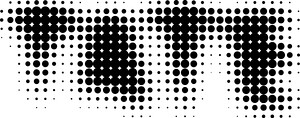February 2017–January 2018
Eduardo Williams, Pauline Curnier Jardin, Fabrizio Terranova, Lili Reynaud-Dewar, Sergei Loznitsa, Natasha Mendonca, Julie Dash, Barbara McCullough, Edward Owens, Williams Greaves, Naeem Mohaiemen, Kevin Jerome Everson, Anton Vidokle, Karrabing Film Collective, Pat O’Neill, Ana Mendieta, Eric Baudelaire, Ben Russell, Yuriy Norshteyn
Tate Film’s cinema program is conceived as an ongoing exhibition bringing together the films of both emerging and established artists and filmmakers working in different traditions of cinematic and artistic practice. The program explores, challenges, and asserts the place of the moving image within the museum of the 21st century, mapping lineages and new practices within a larger art historical frame. It is in constant dialogue with Tate Modern’s exhibitions, collection displays and mandate, and occasionally extends beyond the Starr cinema into spaces such as The Tanks, as with January’s iteration of Tony Conrad’s seminal 1972 expanded cinema work Ten Years Alive on the Infinite Plain.
The cinema program is a stage for unique encounters with film in all its forms, as well as for in-depth discussions with artists. Structured into three regular strands—Pioneers, Artists’ Cinema and Counter-Histories—it draws contemporary and historical works into ongoing conversations and curatorial threads exploring the boundaries between the moving image and visual art, performance, and sound.
Pioneers
The Pioneers strand presents retrospectives of filmmakers and artists whose works have proposed new approaches to cinema.
Following from January’s presentation of the works of artists Bruce and Norman Yonemoto, the 2017 Pioneers series features African-American artist and filmmaker Kevin Jerome Everson’s portrayals of black working-class labour and culture, Australian Indigenous media group Karrabing Film Collective’s grassroots approach to ethnography and self-representation, and the poignant and haunting short films of late Cuban artist Ana Mendieta.
Artists’ cinema
This series presents previews, premieres or unique presentations of films, followed by discussions with the artist. Focused on contemporary forms of moving image practice, the Artists’ Cinema strand now includes bimonthly screenings at Tate Britain highlighting the works of British and UK-based artists in addition to Tate Modern’s monthly series.
The 2017 selection at Tate Modern continues a dialogue around artists’ approaches to ethnography initiated with the January premiere of Salomé Lamas’s Eldorado XXI, as well as the conversation between live art and film initiated with the February premiere of César Vayssié’s UFE(UNFILMÉVÈNEMENT). Upcoming screenings in this strand include premieres of new works by Pauline Curnier Jardin, Fabrizio Terranova, Lili Reynaud-Dewar, Sergei Loznitsa, Natasha Mendonca, Naeem Mohaiemen, Anton Vidokle, Pat O’Neill, Eric Baudelaire, and Ben Russell.
Counter-Histories
This strand presents thematic programs that challenge stereotypes of regional and historical movements in film and art history.
2017’s Counter-Histories series includes a program presented in conjunction with Tate Modern’s Soul of a Nation: Art in the Age of Black Power exhibition, a collaboration with University of Reading exploring the films emerging in the context and wake of Brazil’s Tropicália movement, and a screening program in dialogue with Tate Modern’s Red Star over Russia exhibition.
The Tate Film cinema program is curated by Andrea Lissoni, Senior Curator, International Art (Film) and Carly Whitefield, Assistant Curator, Film. The program is produced by Judith Bowdler, Production Manager Curatorial.
Tate Film is supported by LUMA Foundation


